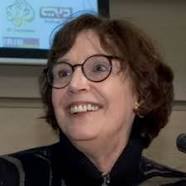The reaction of the leading Western partners was indignation, rejection, and a 15-year media campaign portraying Putin as some sort of demonic creature.
Indeed, since that speech there have been no limits to Western media's insults directed at Putin and Russia. And in this scornful treatment we see the two versions of World War II. In 2014, world leaders gathered in Normandy to commemorate the 70th anniversary of the D-Day landings by U.S. and British forces.
In fact, that 1944 invasion ran into difficulties, even though German forces were mainly concentrated on the Eastern front, where they were losing the war to the Red Army. Moscow launched a special operation precisely to draw German forces away from the Normandy front. Even so, Allied progress could not beat the Red Army to Berlin.
However, thanks to Hollywood, many in the West consider D-Day to be the decisive operation of World War II. To honor the event, Vladimir Putin was there and so was German Chancellor Angela Merkel.
Then, in the following year, world leaders were invited to a lavish victory parade held in Moscow celebrating the 70th anniversary of the end of World War II. Leaders of the United States, Britain and Germany chose not to participate.
This was consistent with an endless series of Western gestures of disdain for Russia and its decisive contribution to the defeat of Nazi Germany (it destroyed 80 percent of the Wehrmacht.) On Sept. 19, 2019, the European Parliament adopted a resolution on "the importance of European remembrance for the future of Europe" which jointly accused the Soviet Union and Nazi Germany of unleashing World War II.
Vladimir Putin responded to this gratuitous affront in long article on "The Lessons of World War II" published in English in The National Interest on the occasion of the 75th anniversary of the end of the war. Putin answered with a careful analysis of the causes of the war and its profound effect on the lives of the people trapped in the murderous 872-day Nazi siege of Leningrad (now Saint Petersburg), including his own parents whose two-year-old son was one of the 800,000 who perished.
Clearly, Putin was deeply offended by continual Western refusal to grasp the meaning of the war in Russia. "Desecrating and insulting the memory is mean," Putin wrote. "Meanness can be deliberate, hypocritical and pretty much intentional as in the situation when declarations commemorating the 75th anniversary of the end of the Second World War mention all participants in the anti-Hitler coalition except for the Soviet Union."
And all this time, NATO continued to expand eastward, more and more openly targeting Russia in its massive war exercises on its land and sea borders.
The U.S. Seizure of UkraineThe encirclement of Russia took a qualitative leap ahead with the 2014 seizure of Ukraine by the United States. Western media recounted this complex event as a popular uprising, but popular uprisings can be taken over by forces with their own aims, and this one was. The elected president Viktor Yanukovych was overthrown by violence a day after he had agreed to early elections in an accord with European leaders.
Billions of U.S. dollars and murderous shootings by extreme right militants enforced a regime change openly directed by U.S. Assistant Secretary of State Victoria Nuland ("F___ the EU") producing a leadership in Kiev largely selected in Washington, and eager to join NATO.
By the end of the year, the government of "democratic Ukraine" was largely in the hands of U.S.-approved foreigners. The new minister of finance was a U.S. citizen of Ukrainian origin, Natalia Jaresko, who had worked for the State Department before going into private business. The minister of economy was a Lithuanian, AÃ �varas Arbomavitchous, a former basketball champion. The ministry of health was taken by a former Georgian minister of health and labor, Sandro Kvitachvili.
Later, disgraced former Georgian president Mikheil Saakashvili was called in to take charge of the troubled port of Odessa. And Vice President Joe Biden was directly involved in reshuffling the Kiev cabinet as his son, Hunter Biden, was granted a profitable position with the Ukrainian gas company Barisma.
The vehemently anti-Russian thrust of this regime change aroused resistance in the southeastern parts of the country, largely inhabited by ethnic Russians. Eight days after more than 40 protesters were burned alive in Odessa, the provinces of Lugansk and Donetsk moved to secede in resistance to the coup.
(Note: You can view every article as one long page if you sign up as an Advocate Member, or higher).






